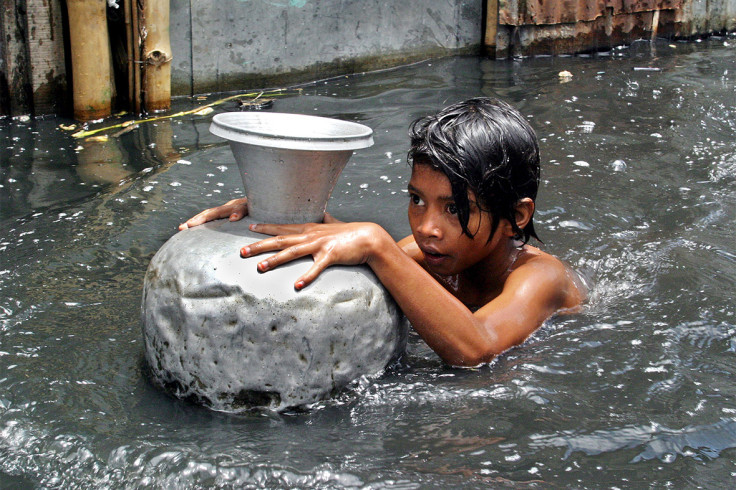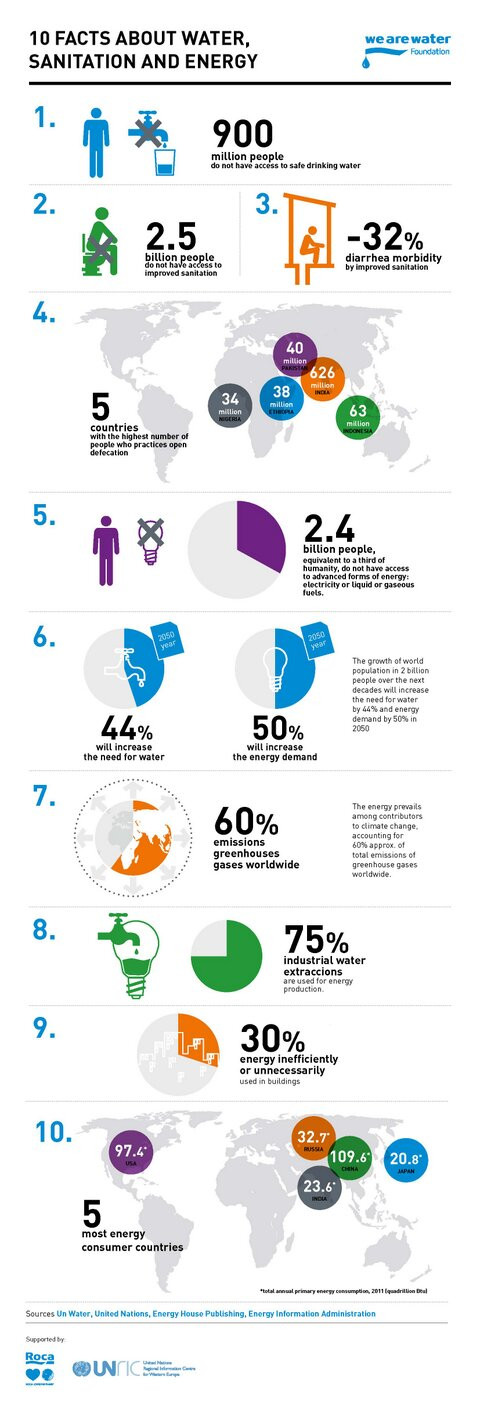World Water Day 2014: Theme, Key Facts and Events Around the World

World Water Day 2014 is observed on 22 March. The United Nations, which instituted the practice in 1993, has said this year's theme is "energy and water".
World Water Day 2014 theme
According to the UN, energy and water are interdependent. Generation and transmission of major energy sources such as hydroelectric, nuclear, and thermal power require water resources. Conversely, about 8% of global energy is used for pumping, treating and transporting water.
The 2014 theme addresses inequalities in this water-energy nexus, the UN said.
The focus is especially on the "bottom billion who live in slums and impoverished rural areas and survive without access to safe drinking water, adequate sanitation, sufficient food and energy services," it said in a statement.
With this year's theme, the UN also aims to facilitate the development of policies in water and energy sectors that "can achieve greater economic and social impact."
Observances
Several events are being held around the world to mark the UN World Water Day and highlight the theme that water and energy are interlinked.
An annual conference was held in Zaragoza, Spain, in January to discuss the role of both the sectors in the conceptualisation of UN's Sustainable Development Goals (SDGs) after 2015.
The main UN event marking the World Water Day 2014 was held on 20 and 21 March in Tokyo, Japan. The World Water Development Report 2014 on Water and Energy was released there.
Besides, this year's World Water Week is scheduled to take place in Stockholm, Sweden, from 31 August to 5 September, and it will be held under the same theme as that of the World Water Day.
Water and Energy: Key facts and figures
Marking the World Water Day, the UN has released some key facts and figures based on this year's theme. They are below:
- Roughly 75% of all industrial water withdrawals are used for energy production
- By 2035, the global energy demand is projected to grow by more than one-third
- 600 million Africans do not have access to energy
- 2.5 billion people have unreliable or no access to electricity
- In Stockholm, public buses, waste collection trucks and taxis run on biogas produced from sewage treatment plants.
- In 2011, 768 million people did not use an improved source of drinking-water and 2.5 billion people did not use improved sanitation.
- More than 1.3 billion people still lack access to electricity, and roughly 2.6 billion use solid fuels (mainly biomass) for cooking.
- Approximately 15–18 billion m3 of freshwater resources are contaminated by fossil fuel production every year.
22 March is #WorldWaterDay. Spread the word & see why: http://t.co/b4kvIW2rvp pic.twitter.com/R7nYvSixMi via @UNW_WWD
— United Nations (@UN) March 21, 2014

© Copyright IBTimes 2025. All rights reserved.




















